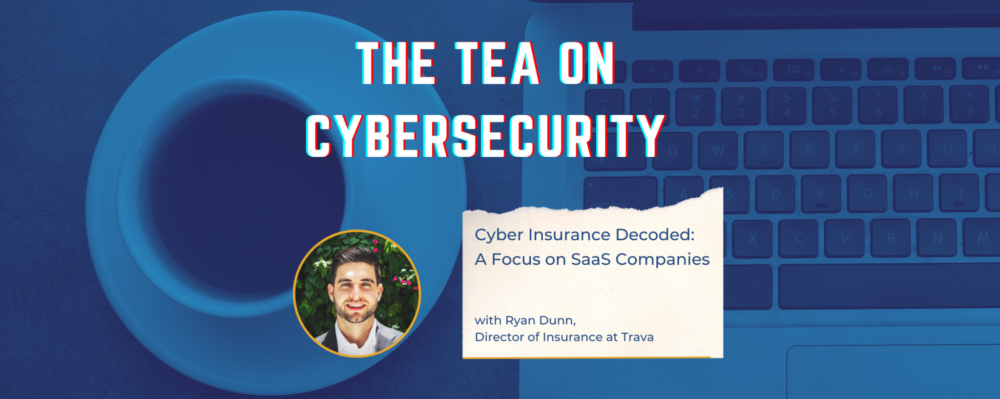“Whenever you have a piece of software that has an obligation to perform a duty, like a SaaS company, the intersection of cyber insurance and professional liability is crucial. It’s important to transfer the risk with a comprehensive cyber insurance policy to protect against both code failures and potential cyber breaches.”
In the latest episode of The Tea on Cybersecurity, Jara Rowe chats with Ryan Dunn, Director of Insurance at Trava, to discuss the importance of cyber insurance as it relates to SaaS companies.
Businesses heavily rely on their digital infrastructure to conduct operations, making them vulnerable to cyber attacks and breaches. This is where cyber insurance comes into play…
Cyber insurance helps cover the costs associated with incident response, data recovery, legal fees, notification and credit monitoring services for affected individuals, and potential lawsuits. In today’s digital age, where cyber threats are becoming increasingly common and sophisticated, having cyber insurance can help businesses mitigate the financial impact of a cyber incident and recover more quickly. Ryan breaks this all down in this episode of the Tea on Cyber Security by explaining exactly why cyber insurance is a necessity, the reasoning for why the relationship between a strong cybersecurity posture and insurance premiums is currently a challenge in the cyber insurance industry, and the key factors insurance companies should pay close attention to when it comes to assessing cyber risk of their company.
This is an episode filled with information you don’t want to miss out on. Listen to hear the tea on cyber insurance.
What you’ll learn in this episode:
- The importance of cyber insurance for SaaS companies and why all businesses should consider procuring it.
- How insurance companies assess the cyber risk of a SaaS company, including factors like master service agreements, MFA (multi-factor authentication), EDR (endpoint detection response), CVE vulnerabilities, and web app data scans.
- The impact of a strong cybersecurity posture on insurance premiums and the ongoing challenge of finding ways to reward companies for investing in their cybersecurity stack.


